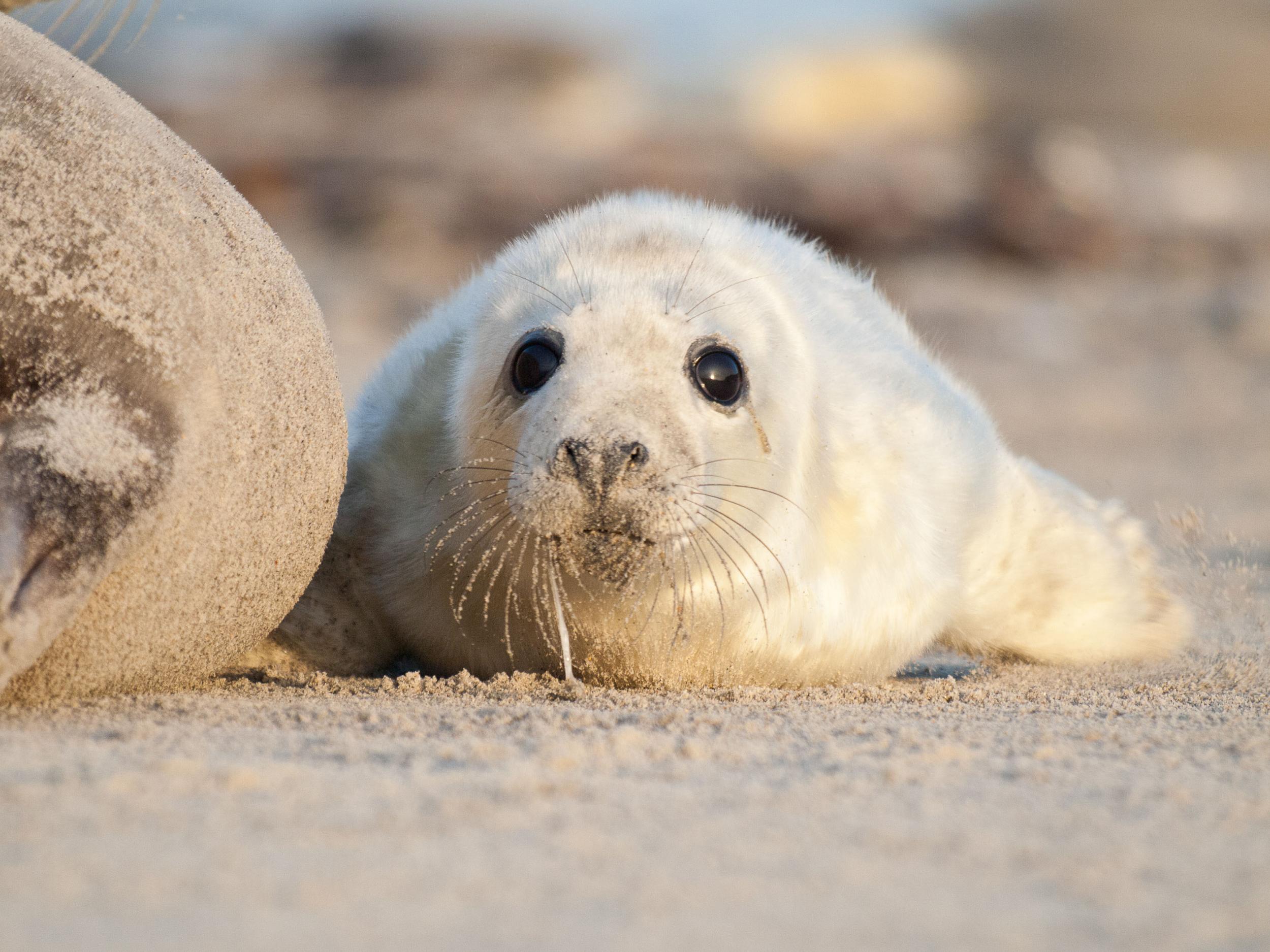Baby seals drinking milk contaminated by toxic chemicals from ocean, study reveals
Substances including banned pesticide DDT have potential to drive marine mammal populations to extinction, scientists say

Seals living off the coast of the UK face a threat to their survival from toxic chemicals that are ending up in pups’ milk, a new study has revealed.
Despite bans on the substances in question, which range from paint additives to pesticides, they are still finding their way into the ocean from sewage and landfill sites.
Scientists are warning the contaminants trigger changes in the way pups gain the fatty blubber they need to survive.
Researchers from Abertay University in Dundee found even low levels of the fat-altering chemicals, known as PCBs and DDT, in the sea are putting the lives of pups at risk.
The research, in partnership with the sea mammal research unit at the University of St Andrews and Belgian academics, confirms the ban – introduced in the early 2000s – may not go far enough to protect wildlife.
Conducted on the Isle of May in the Firth of Forth, the study focused on grey seal pups in their first weeks of life.
Group leader Dr Kimberley Bennett explained how the chemicals have become locked in the ecosystem, with mother seals accumulating them from fish and passing on the harmful effects to their young through their milk.
“We’ve known for a long time that high levels of these chemicals are very dangerous and can hamper reproduction and immunity in marine mammals,” she said.
“They may even drive some populations towards extinction.
“Efforts to reduce levels in the environment have been successful. But our new research shows that blubber, which is a vital for seals and whales, could be vulnerable to harmful effects of PCBs and DDT at levels much lower than previously thought.”
Although the so-called “dirty dozen” chemicals are banned from being produced and released into UK waters under the Stockholm Convention, they are still entering the oceans.
The contaminants have been seen as harmful to wildlife since the 1970s, with marine mammals facing the biggest threat because they feed at the top of the food chain.
Dr Kelly Robinson and Prof Ailsa Hall of the University of St Andrews said: “We have already shown that these chemicals can reduce the likelihood that a seal pup will survive to its first birthday.
“We’ve now discovered why this is the case and how these toxins add to the seals’ burden of potential health effects.”
These results were published in the journal Environmental Science and Technology.

Concern about pollution in the ocean has shot up as public awareness of plastic waste has grown, and there have been several high-profile cases of seals harmed by plastic debris.
However scientists are also concerned plastic fragments may add to the burden of dangerous chemical pollution in waterways, as these small objects are often contaminated with substances they have picked up either during manufacture or from the environment.
Some preliminary studies have suggested that chemicals found in plastic may have an impact on animal behaviour.
Additional reporting by PA
Join our commenting forum
Join thought-provoking conversations, follow other Independent readers and see their replies
Comments
Bookmark popover
Removed from bookmarks